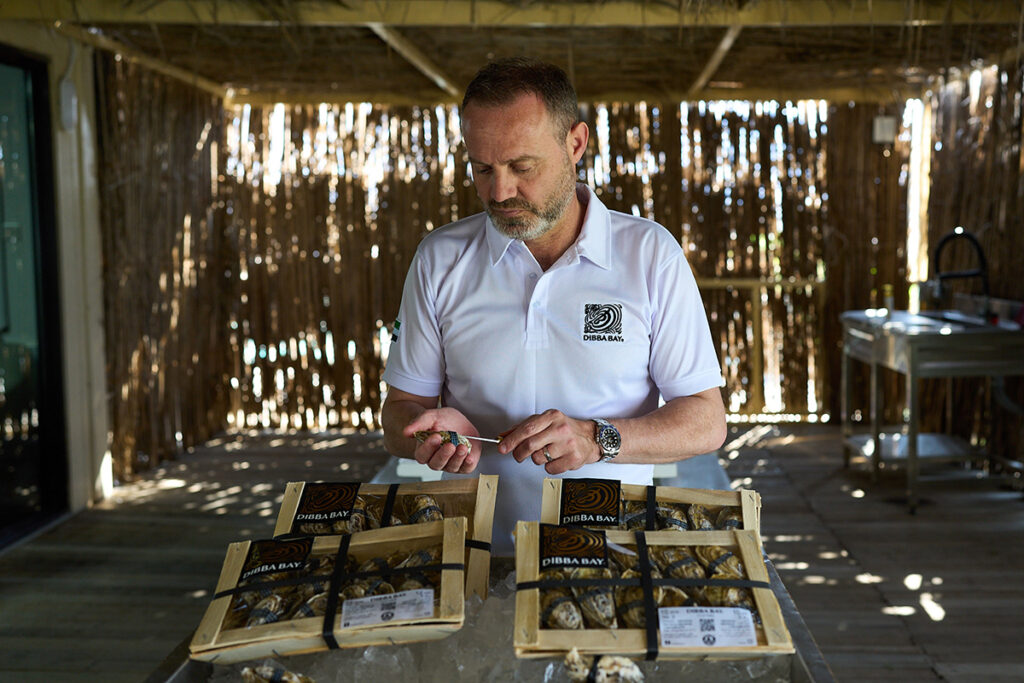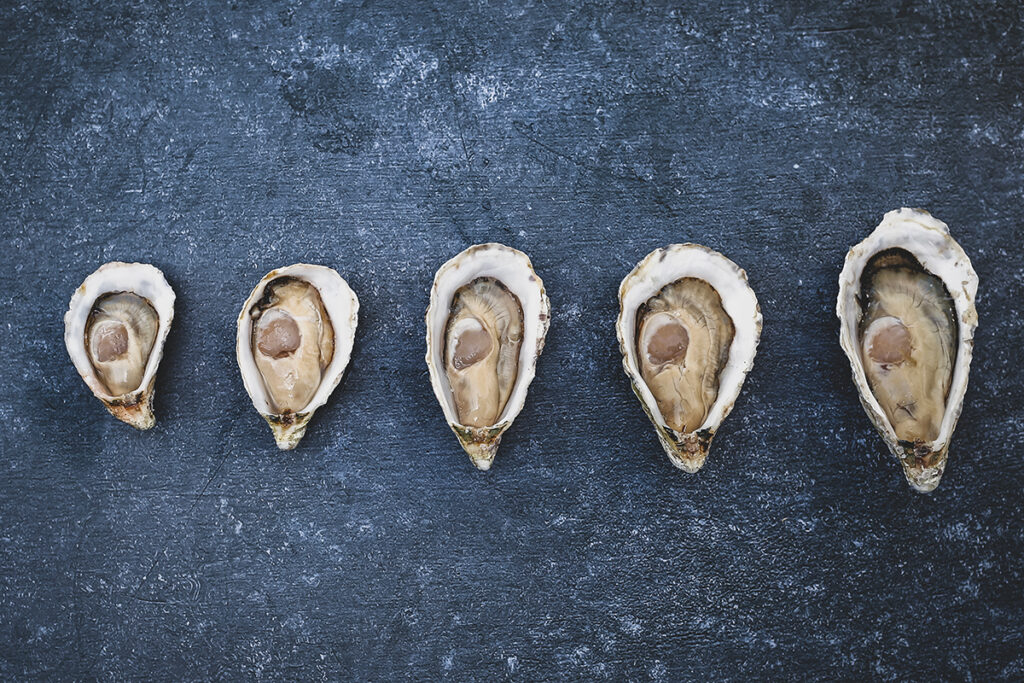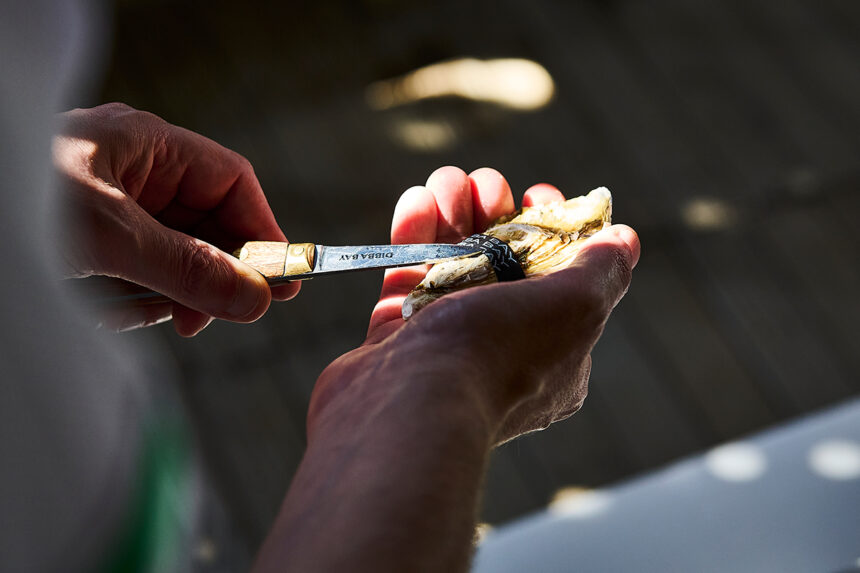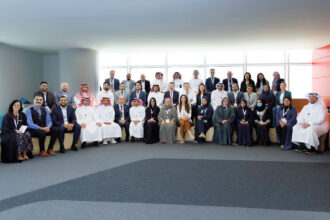The Producer based in Fujairah, who currently orders approximately 55 percent of the EAU Oyster market, has benefited from the recent increase in the opening of high -end restaurants throughout the region.
This occurs when Dubai has seen a notable increase in new gastronomy establishments in the last two years, with international luxury restaurant chains that enter the market and local brands that expand abroad. The city has quickly become a global culinary destination, attracting prestigious brands of restaurants around the world while promoting local concepts that are now finding success in foreign markets.
Andrea Sartoris, who assumed the role of general manager in Dibba Bay in January, has observed this first -hand transformation.
Duration The first five months of 2024 alone, more than 1,500 new food establishments opened in Dubai. In mid -2024, the total number of food establishments in the Emirate stood at 26,000, according to Gulf’s news, with worldwide reputation chains that entered the EAU market in record numbers.
Founded in 2016, Dibba Bay has grown to use almost 95 employees and operates multiple concessions on the high seas in the waters of Fujairah. The company reports that 75-80 percent of its local sales come from the hospitality sector, with the rest through retail channels, including Spinneys, Waitrosis and Carrefour, as well as the direct directors to which they are found.
Wealth migration
Dubai’s explosive growth in Premium meal establishments has created fertile land for luxury food products. This increase corresponds directly to the strategic positioning of the EAU as a safe shelter for global wealth, attracting ultra high individuals of the Europe, Russia and Asia network.
Since 2022, the EAU have seen one of the highest net entries in the world of millionaires and billionaires, with Dubai only welcoming thousands of new rich residents, bringing sophisticated palates and expectations for world -class meals.
“Many restaurants, mainly restaurant restaurants, are trying to emphasize more premium seafood products,” Sartoris explained.
“Oysters are definitely the core of this category where they can sales.
This trend has proven to be particularly beneficial for Dibba Bay, which has seen the demand in parallel with the rise of Dubai restaurants. “We have definitely seen an increase in the demand of establishments in Dubai,” Sartoris confirmed.

Freshness advantage
The unique sale proposal of Dibba Bay focuses on freshness, and the company delivers oysters to customers within 24 hours after harvesting, a marked contrast with the imported alternatives.
“If we look at international products such as French oysters, it usually takes time. There is air freight, there is a massive cold chain. Usually, international oysters already have three to five days when they arrive here, and the useful life of the oyster is only 10 days,” Sartoris explained.
This advantage of freshness has proven to be crucial for high -end restaurants where quality and consistency are essential. With deliveries three times a week through the EAU, Dibba Bay says that even the most demanding chefs receive products in their maximum condition.
The company has also observed an interesting correlation between Oyster and Caviar Demand. “Usually, when there is caviar, there are also oysters,” Sartoris said. “There are no restaurants that serve oysters but do not have caviar in their menu.”
This connection has further consolidated Dibba Bay’s position within Dubai’s luxury gastronomic ecosystem, since chefs increasingly combine the two premium articles in their menus. For the growing population of the emirate of ultra high individuals in the value of the network of which, of which they come from Russia and other regions where caviar is partially venerated, these matches represent the pinnacle of gastronomic indulgence.
From pearls to premium oysters
The success of Dibba Bay reproduces a modern evolution of the Maritime heritage of the EAU. Long before oil transformed the EAU into a global power, pearl diving formed the backbone of the coastal economy, with various warm waters of the Gulf in search of natural pearls for royalty and aristocrats worldwide.
When the cultivated pearl industry and the great depression gave a crushing blow to this trade in the early twentieth century, many feared that the maritime experience of the Emirates would be lost in history. Dibba Bay has now reused this aquatic knowledge for the production of luxury shellfish.
“When Dibba Bay Oyster Brand was launched, aquaculture on the high seas in the EAU was largely unknown territory,” Sartoris said. “Many people didn’t know that oysters could prosper in thesis waters.”

Sustainability approach
The local production model sacrifices important sustainability benefits. “Our agricultural methods are 100 percent natural,” Sartoris said. “We do not use food, we do not have chemicals, and we do not use water. Our oysters are always in seawater.”
Each oyster filters up to 170 liters of daily seawater, which means that with millions of oysters in the water, they collectively filter millions of liters per day, improving the health of the ocean and support for marine conservation.
The company has implemented a reef restoration project that reuses shells of discarded oysters.
“We are remembering the shells of the places, taking them back to the farm, healing them to ensure that there are no bacteria, then you put them in cages deployed in particular areas near Dibba, where we are restoring the reef,” Sartoris said.
Faster growth, international expansion
A key advantage for the EAU producer is the significant growth cycle of the faster of their oysters, nine to eleven months compared to three years for European varieties, thanks to the warm waters of the Gulf.
“When the meat is younger, it is definitely better. That is why our taste is unique, and the abductor muscle, which is what cuts people to open the oyster, is more crispy,” Sartoris said.
Despite this quality advantage, they are still challenges in consumer’s perception. “Many consumers still think that local farms are considered less expert than international farms,” Sartoris said. “We want to change this mentality.”
Beyond the domestic market, Dibba Bay has begun to expand international, with 20-25 percent of its production now exported to markets, including Russia, Hong Kong and Macao. The company plans to focus on greater expansion in China and Singapore in the third and fourth quarter of 2025.
“The objective is basically to create a solid market share, to increase the market as the EAU market in the first place,” Sartoris said on the company’s expansion plans, added that parallel efforts will follow to grow in export markets.








